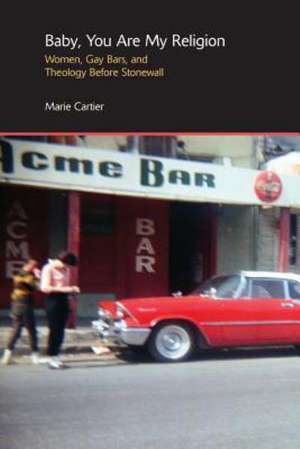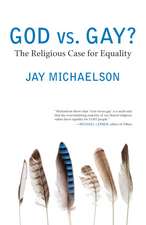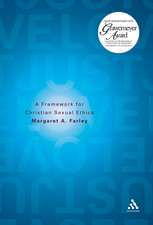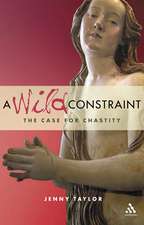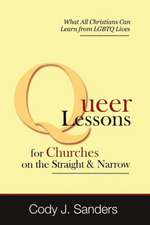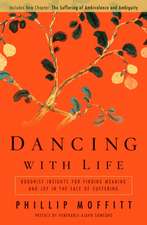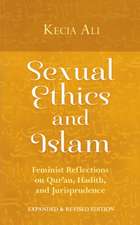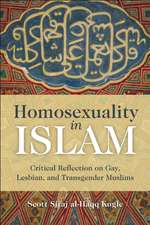Baby, You are My Religion: Women, Gay Bars, and Theology Before Stonewall
Autor Marie Cartieren Limba Engleză Paperback – 29 noi 2013
| Toate formatele și edițiile | Preț | Express |
|---|---|---|
| Paperback (1) | 367.45 lei 6-8 săpt. | |
| Taylor & Francis – 29 noi 2013 | 367.45 lei 6-8 săpt. | |
| Hardback (1) | 1135.18 lei 6-8 săpt. | |
| Taylor & Francis – 29 noi 2013 | 1135.18 lei 6-8 săpt. |
Preț: 367.45 lei
Nou
Puncte Express: 551
Preț estimativ în valută:
70.31€ • 73.41$ • 58.19£
70.31€ • 73.41$ • 58.19£
Carte tipărită la comandă
Livrare economică 05-19 aprilie
Preluare comenzi: 021 569.72.76
Specificații
ISBN-13: 9781844658947
ISBN-10: 1844658945
Pagini: 270
Dimensiuni: 156 x 234 x 15 mm
Greutate: 0.4 kg
Ediția:New.
Editura: Taylor & Francis
Colecția Routledge
Locul publicării:Oxford, United Kingdom
ISBN-10: 1844658945
Pagini: 270
Dimensiuni: 156 x 234 x 15 mm
Greutate: 0.4 kg
Ediția:New.
Editura: Taylor & Francis
Colecția Routledge
Locul publicării:Oxford, United Kingdom
Cuprins
Preface 1. Introduction: 'It was the only place.' Part 1: Interviews With Women 2. 1940s: Thank God the Japanese Surrendered 3. 1950s: I Should have Made a List of My Girlfriends! 4. 1960s: It was Hollywood, We Did a Girlfriend Daisy Chain! 5. 1970s: We were Women in Overalls Dancing with Women in Overalls: They Kicked Us Out! 6. 1980s: I really did think I was Jess from 'Stone Butch Blues' Reincarnated Part 2: Theological History and Contexts 7. Historical Antecedents 8. Theological Strands Part 3: The Nature of "Theeology" 9. Experience is Primary 10. What is Theelogy? 11. Four Tentants of Theelogy 12. Conclusion...Last Call!
Notă biografică
Marie Cartier is a scholar, visual /performance artist, queer activist, poet and theologian who has been active in many movements for social change. She teaches in Film and Media at UC Irvine and Gender and Women’s Studies at California State University Northridge.
Recenzii
"Baby, You Are My Religion is written with passion and seeks to add a more spiritual dimension to the genre of cultural histories written about the place of lesbians in the gay bar scene. The accessible prose, supplemented with a sizable list of theoretical and theological definitions, in addition to the entertaining and provocative interviews, makes for an undemanding, yet fun, read." —Marcie Bianco, Lambda Literary Review
"Cartier’s book offers new wisdom and rejuvenation to those activist religious scholars searching for a religious history of LGBTQ inclusion only to find that one does not exist." —John Erickson, Claremont Journal of Religion
"This book provides a good slice of history, social interactions and limitations that were placed on gay women as they tried to live with their sexual identities. It is a good introductory book with an interesting overview of gay women’s lives and the gay bar scene... This book is a rich addition to the gay women’s literature as well as theological discourse." —Grace Ji-Sun Kim, Earlham School of Religion, USA
"In this history of LGBT oppression in America from the 1940s to the 1980s, Marie Cartier does much more than remind us that before the 1969 Stonewall riots, the gay bar was the only social space that allowed lesbians to be themselves. She makes a compelling case that it was also a space where theology was done." - Therese Bjoernaas, Journal of Religion and Theology
"impressively multi-faceted meditation on lesbian bar culture."
"Cartier honors the women whose lives she records and makes a valuable contribution to the study of American religion."
"teases out how butch-femme bar culture generated a spirituality based in relational self-definition."
"Given the complexity of the task Cartier undertook, her accomplishment is substantive."
"Cartier's book merits attention from historians of LGBT America and theorists of religion, for the richness of its primary material and the probing questions it poses about the functions and forms of religion."
The Journal of American Culture - Jennifer Rycenga
"Cartier’s book offers new wisdom and rejuvenation to those activist religious scholars searching for a religious history of LGBTQ inclusion only to find that one does not exist." —John Erickson, Claremont Journal of Religion
"This book provides a good slice of history, social interactions and limitations that were placed on gay women as they tried to live with their sexual identities. It is a good introductory book with an interesting overview of gay women’s lives and the gay bar scene... This book is a rich addition to the gay women’s literature as well as theological discourse." —Grace Ji-Sun Kim, Earlham School of Religion, USA
"In this history of LGBT oppression in America from the 1940s to the 1980s, Marie Cartier does much more than remind us that before the 1969 Stonewall riots, the gay bar was the only social space that allowed lesbians to be themselves. She makes a compelling case that it was also a space where theology was done." - Therese Bjoernaas, Journal of Religion and Theology
"impressively multi-faceted meditation on lesbian bar culture."
"Cartier honors the women whose lives she records and makes a valuable contribution to the study of American religion."
"teases out how butch-femme bar culture generated a spirituality based in relational self-definition."
"Given the complexity of the task Cartier undertook, her accomplishment is substantive."
"Cartier's book merits attention from historians of LGBT America and theorists of religion, for the richness of its primary material and the probing questions it poses about the functions and forms of religion."
The Journal of American Culture - Jennifer Rycenga
Descriere
The Stonewall Inn was the location of a rebellion that ultimately led to the gay liberation movement. This book offers a fresh perspective on the role of gay bars in 1950s America as sacred space for the community.
